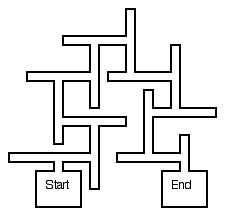I am having a pedagogical crisis of thought. Based on years of having taught both face to face and online I want my kids to proceed in order more or less. I don't particularly care if they complete the homework or the discussion board first within a unit, but I don't care for the results when they unit hop. However, in a world where people flit through information via a collection of links which may or may not fall in a line, am I missing the boat?
I consider a recent web experience in which I was purchasing tickets, watched a video, clicked a "related video" link which lead me to an ezine, read commentary which then linked me to a recipe which sounded great and I never purchased the tickets....
But pedagogically, I know that brains think that way. The concept map/brain map side of me says that connections are richer when created through rich pathways. My favorite go to websites for math and science info are hypermath or hyperphysics because of that interconnectedness. So why is is that when I want to present content to a class, I cannot myself present that way? To me teaching that way feels like pedagogical anarchy.
Why do I continue to follow the module lesson assessment order of things? Why can I not abandon to the bacchanal excesses of the unfettered brain?
Oh yea-there is a test at the end. I knew there was a reason.
Consider this
a world where we explore and are not assessed? where latent learning is by design.
Can we abandon the old way and do for our students what the maze men did for the rats? Would this be a better way?"Do rats learn a maze by choosing the corridors that lead to a reward, or do they generate an internal map of the maze even without a reward (called latent learning)? To answer this question, researchers placed a rat in a maze and let it explore the maze with no reward. The rat simply wandered about. Then the researchers started placing food in the reward corner. Rats who were already familiar with the maze learned to solve the maze more quickly and acheived better scores than rats who had never been given exploration time. Their proficiency indicated that the rats had generated a cognitive map of the maze during their explorations (Tolman and Honzik 1930)."
http://www.ratbehavior.org/RatsAndMazes.htm
And yet part of my job is assessing...how can I assess exploration?
What is a rat to do in a cheese driven society?


No comments:
Post a Comment